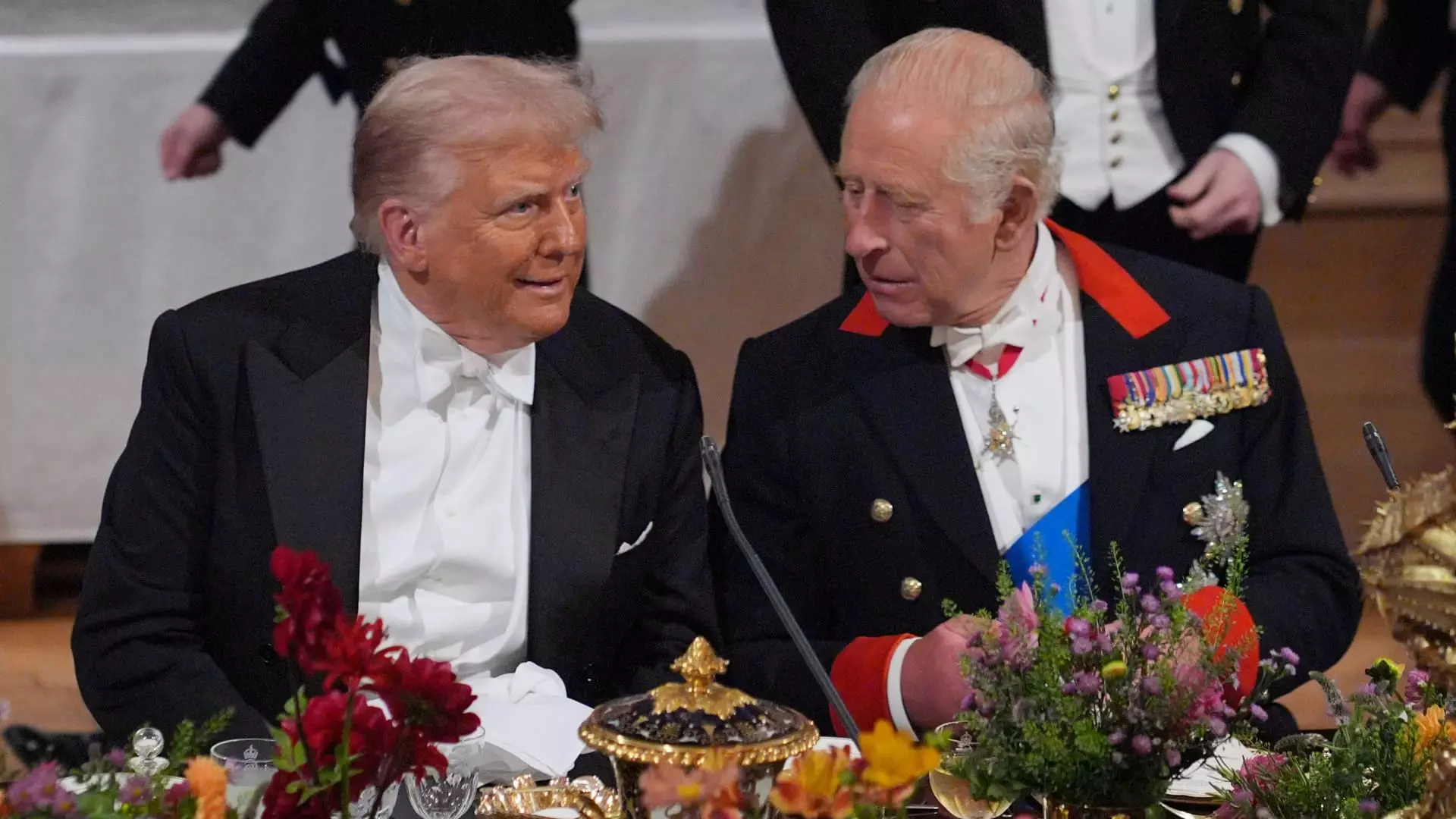The recent state visit of Donald Trump to the United Kingdom epitomizes how modern diplomacy often devolves into superficial displays rather than meaningful engagement. On the surface, the pomp and ceremony at Windsor Castle, complete with royal gun salutes, carriage rides, and grand banquets, seem to symbolize strength, respect, and international influence. Yet beneath this glittering façade lies a troubling reality: these choreographed theatrics obscure the deep strategic and political shortcomings of the commitments made during such visits. It is a reminder that the spectacle of diplomacy, with all its pageantry, often serves as an empty stage that distracts from substantive policy issues that demand genuine leadership and accountability.
The Court of Illusions: Economic Deals and Their True Significance
The announcement of a £150 billion investment package during Trump’s visit promises economic growth and job creation; however, this figure must be scrutinized critically. Large sums are often advertised for their ability to impress, but these are frequently projections based on future commitments that may never materialize fully or sustainably. The reality is that trade deals crafted in the opulence of royal palaces tend to prioritize short-term political gains or national prestige over long-term economic stability and fairness. The fact remains that these agreements are often lopsided, favoring powerful corporations and political interests rather than the working people they claim to benefit.
Furthermore, the discussed U.S.-U.K. trade deal, particularly concerning tariffs on steel and aluminum, exposes the fragility of these diplomatic constructions. While the UK aspires to dismantle tariffs to foster industry, the underlying geopolitics reveal that these negotiations are less about economic fairness and more about geopolitical positioning. Such negotiations often pit diplomatic rhetoric against economic reality, with compromises made not necessarily for the national interest but to serve the agendas of powerful stakeholders on both sides.
The Power of Symbolism Over Substance in Political Relations
Trump’s affectionately framed remarks about being honored to return to Britain underscore how political narratives rely heavily on emotional appeals rather than substantive foresight. The spectacle of a President—who, in the past, has been criticized for undermining norms and disrupting global consensus—being crowned with royal approval, vividly illustrates how modern diplomacy often hinges on personal relationships and symbolic gestures rather than rule of law or shared values. King Charles’s praise for Trump’s “personal commitment” sounds more like a public relations flourish than an endorsement of effective leadership or international stability.
The emphasis on diplomatic camaraderie, with Trump and British officials engaging in formal receptions and joint press conferences, seems more designed to generate media buzz and global optics rather than forge resilient alliances based on mutual interests. It begs the question: does this theatrical diplomacy produce tangible progress, or does it simply serve the interests of image management and political capital? When the world’s stage is set with grandeur, it often diverts attention from the complexity and nuance of international issues—such as enduring conflicts in Ukraine or the Middle East—that require more than diplomatic photo ops.
A Center-Left Perspective: Recognizing the Limits of Band-Aid Diplomacy
From a centrist liberal perspective, it is evident that these displays of international camaraderie do little to address systemic global challenges. The focus on high-profile visits and headline-grabbing investments risks diverting attention from critical issues like climate change, inequality, and the unending cycles of war. While promoting economic cooperation has its merits, the underlying imbalances and contradictions inherent in these dealings often perpetuate global injustice under the guise of progress.
More troubling, perhaps, is how policymakers often prioritize short-term geopolitical wins over long-term sustainable development. The spectacle of state visits can be weaponized as tools of soft power, but this is only effective if accompanied by genuine policy reforms rooted in human rights, social justice, and multilateral cooperation. When these spectacles are used as smoke and mirrors, they undermine the credibility of the very values they aim to promote, revealing that underneath the glitter lies a fragile commitment to true progress.
In essence, these diplomatic theatrics risk becoming a façade—masking the inability or unwillingness of global leaders to confront uncomfortable truths or implement meaningful change. If diplomacy is to serve its true purpose, it must move beyond symbolic gestures and conflate power with responsibility—something that these staged events, with their emphasis on ceremony over substance, rarely achieve.


Leave a Reply